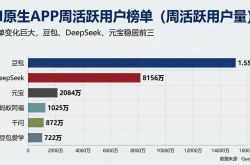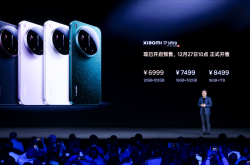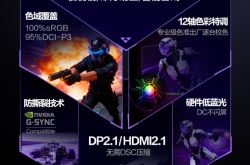The fiercest 618, yet video accounts still lack major influencers
![]() 06/13 2024
06/13 2024
![]() 701
701
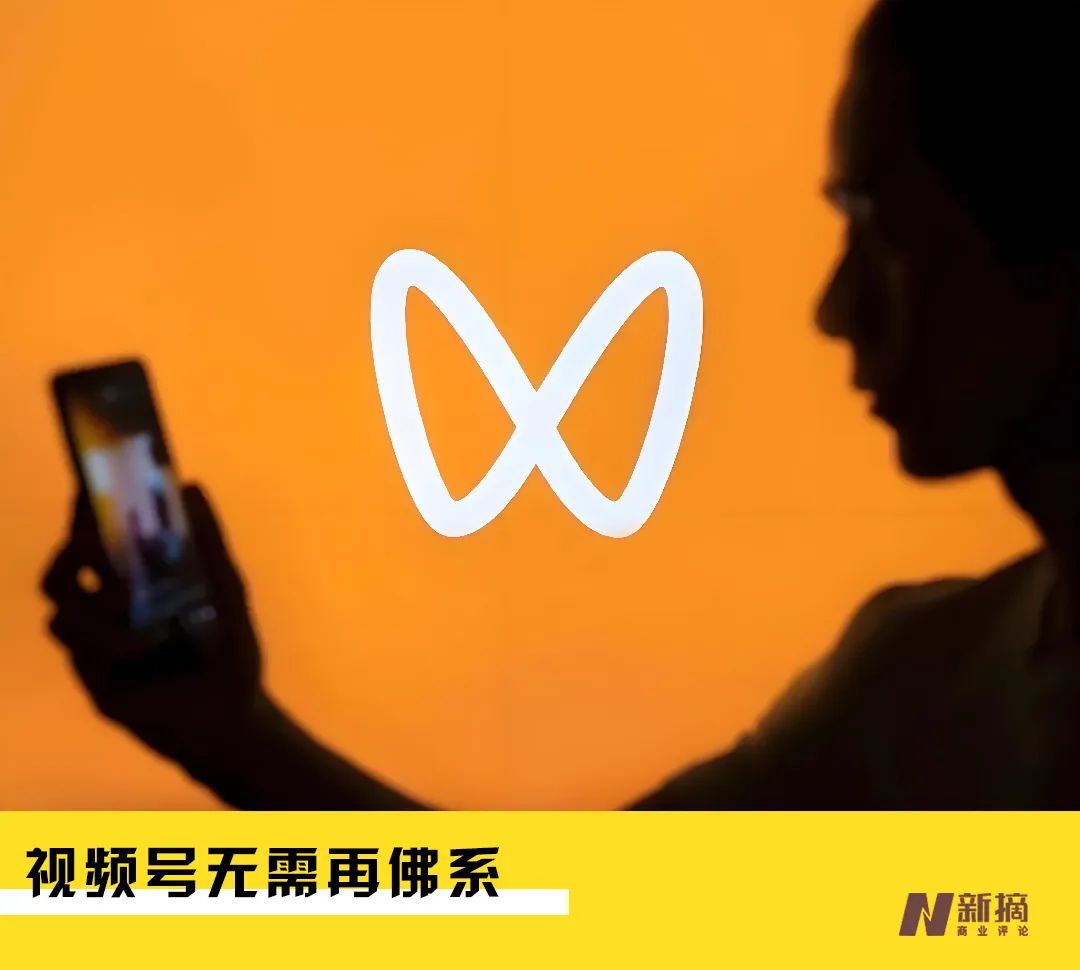
Over the past year, the video accounts, which have received too much attention, must surge forward to live up to the title of "the hope of the entire field".
Author/ Luo Zhi
Produced by/ NewPick Business Review
The annual 618 has begun, and video accounts can no longer be indifferent. They should seize the best marketing opportunity of the year and strive for live streaming sales.
In this "most anxious" 618, comprehensive e-commerce and short video platforms are doing their utmost to embrace growth.
According to research data from Analysys, during the first cycle of this year's 618 (May 20th to June 3rd), the GMV growth rate of comprehensive e-commerce platforms led by Taobao Tmall, JD.com, and Pinduoduo reached 14%.
Not only is it due to low prices, but live streaming e-commerce has also played an indispensible role.
Li Jiaqi displayed his talents and crossover skills, joining the popular variety show "Brothers Striding Forward" and trending on Weibo. Dong Yuhui, who "started a new business," appeared in Shenzhen Nanshan, and sold one billion yuan in just one live broadcast. Xinba, who had just criticized Kuaishou, apologized before the 618 to grab attention and gained the解封 of his account.
Unlike the top influencers on Taobao, Douyin, and Kuaishou who contribute significantly to the platform's topics and popularity, video accounts supported by WeChat seem to lack presence. Although widely recognized as "a new growth lowland" and "the hope of the entire field," video accounts, which have been exploring the live streaming sales track for three years, still haven't unearthed a true superstar.
In Li Jiaqi's first live broadcast during 618, the GMV of beauty products reached 2.675 billion yuan, while Xinba, the top influencer on Kuaishou, achieved 1.427 billion yuan in his first live broadcast during 618. These figures are 50 times and 28 times higher than the 50 million yuan achieved by Guo Yiyi, the top influencer on video accounts, respectively.
Apart from the lack of major influencers with nationwide influence, the performance of video account e-commerce lags far behind its competitors in the current slowdown of the live streaming sales industry. According to public data, the GMV of video account e-commerce in 2023 was approximately 100 billion yuan, equivalent to 1/20 of Douyin e-commerce and 1/10 of Kuaishou e-commerce.
The trillion-dollar achievements of Kuaishou and Douyin today are inseparable from the platform's support for top influencers. If video accounts, which are still product-driven, want to join the "trillion-dollar club," they can no longer be indifferent.
I. Lack of Intention to Cultivate Superstars
The lack of superstars comparable to Li Jiaqi and Dong Yuhui on video accounts is closely related to the platform's top-level design.
As Zhang Xiaolong said, the purpose of video accounts is to create an equal and inclusive ecosystem, not exclusive to top players. They don't invite celebrities or buy content. Adhering to the principle of "equal and inclusive technology," video accounts do not display the number of followers on their pages, and internally, they have never set KPIs for GMV, treating all influencers as equally as possible.
It is precisely because of the lack of intention to cultivate superstars that even if top agencies with nationwide popularity want to join, video accounts can hand over the opportunity to others.
It is reported that in 2023, the Eastern Selection team discussed with WeChat about joining video accounts. However, WeChat only welcomed them to broadcast without providing traffic support or differential treatment. In contrast, Taobao sent a 20-person team to negotiate, and in August of the same year, Eastern Selection joined Taobao Live.

Specifically, there is strategic incoherence between video accounts and Tencent Advertising in terms of the layout of the e-commerce ecosystem.
According to reports, Tencent Advertising advocates that video accounts follow Douyin's interest-based e-commerce model, increasing internal advertising revenue and commercialization levels by expanding GMV. This is almost a proven growth path. However, video accounts are hesitant about technology and still position themselves as a tool, without attempting to solve customer service and supply chain issues that are of concern to live streaming e-commerce businesses.
Due to their slow pace, video accounts have been criticized for their slow infrastructure growth.
As Zhuang Shuai, an expert in the retail e-commerce industry, commented, Tencent relies on third-party platforms like Weimob for its e-commerce infrastructure, such as cross-selling, cross-store discounts, full-reduction promotions, and user evaluation systems. This has led to a lack of completeness in the video account e-commerce system.
The incomplete infrastructure has limited the rise of top influencers on the platform to a certain extent.
In contrast, to support novice influencers, Taobao introduced a full-service package in February this year, providing "nanny-style" operational services from account cold start, official inventory support, to marketing planning for stars, KOLs, and MCN agencies interested in joining Taobao Live. The results are obvious. Both Jiumeimei and Wei Junjie, who are new "dark horse influencers" on Taobao this year, have achieved sales of over one billion yuan in their live broadcasts.
Video accounts are eagerly anticipated by the outside world and aspire to rapid growth. However, their actions are inconsistent, insisting on their own path, which has led to video accounts deviating from the track of rapid commercial growth.
II. Video Accounts Lack Price Wars
It is a consensus that top live streaming rooms rely on low prices to gain sales.
Brands promise low prices in exchange for exposure in top live streaming rooms to achieve deterministic sales, while influencers rely on lower prices to attract fans to place orders. The two complement each other. Li Jiaqi relied on "the lowest price on the entire network" to gain significant attention, secure brand concessions, and repeatedly break through in live broadcast sales.
However, unlike most influencers who focus on low prices, video accounts restrict their platform's influencers from competing on low prices and instead steer towards competing on brand power.
In March last year, video accounts issued relevant regulations prohibiting influencers from promoting products at prices lower than the market average. In October, they intensified their efforts to investigate low-price traffic attraction, temporarily banning products with a minimum price below 5 yuan from entering the alliance and prohibiting merchants from using tactics such as withholding orders or promoting low-priced products with poor after-sales evaluations from a large number of merchants.
Apart from refusing excessively low prices, in terms of the style of live streaming sales, video accounts prefer to encourage merchants or influencers to learn from Dong Yuhui's informative live streaming rather than Li Jiaqi's sales pitch.
Content-focused influencers actually have lower monetization efficiency than Li Jiaqi. Eastern Selection, which gained popularity through "knowledge-driven sales," realized this issue and significantly reduced the proportion of content output in its live broadcasts, dedicating more time to sales. Although criticized for "changing its tune," we can see that the content-driven sales encouraged by video accounts may have limited upside potential.
At a time when Pinduoduo's low-price strategy and Li Jiaqi's sales pitch have been validated by the market, video accounts have resolutely taken another path. Of course, the progress of video accounts' brand strategy is also less than ideal.
Video accounts, which emphasize brand power, have also excluded many brands due to overcorrection.
In early February this year, video accounts updated their brand merchant entry certification rules, no longer requiring qualification certificates from external platforms such as Taobao, JD.com, Pinduoduo, and Kuaishou. Instead, they转向参考 Tencent's official brand power grading entry standards, including brand listing, WeChat index, and public account followers as assessment dimensions.
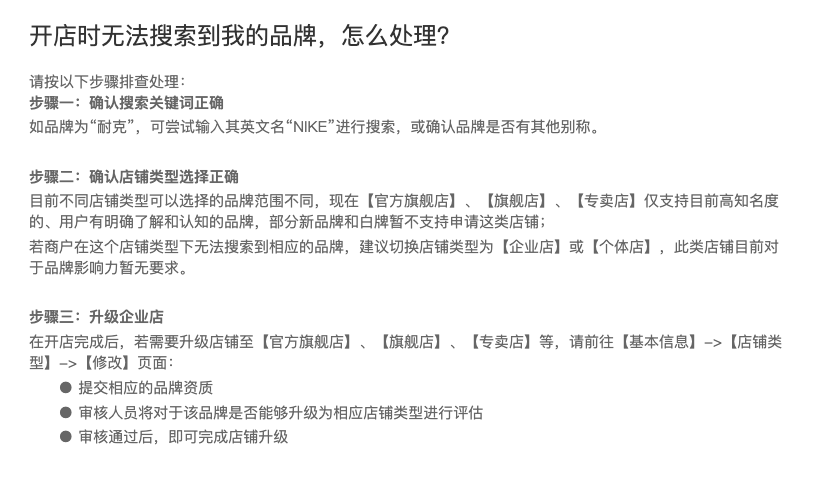
It is reported that the certification requirements for some categories of video account brand merchants are even higher than those of the aforementioned platforms. A home category merchant who has opened a flagship store on Tmall failed to pass the recent application for video account flagship store certification due to "insufficient brand power".
Emphasizing brand power is essentially to ensure user experience, user reputation, and maintain the health of the ecosystem. However, operating a WeChat public account is not an overnight success. Excessively high entry barriers will undoubtedly prolong the brand entry cycle, excluding many brands. For video accounts that are just starting out, this supply shortage will inevitably affect the large-scale development of live streaming e-commerce.
According to WeChat Open Class data, brand merchants contribute only 15% of the GMV. In comparison, 70% of Taobao Tmall's revenue in 2022 came from brand merchants, and in 2021, nearly 60% of Douyin's GMV came from brand parties. Some well-known brands have formed regular live broadcasts on Douyin, but only "occasionally" on video accounts.
It is understandable that video accounts do not want to compete with Pinduoduo and aim to create a unique value with a strong brand tone. However, in today's market where low prices are the core competitive point for major e-commerce platforms, video accounts are going against the grain. How much growth space there is still needs time to verify.
III. From Hundreds of Billions to Trillions, Video Accounts No Longer Need to Be Indifferent
Indifference and restraint are indeed the core characteristics of WeChat. Over the past year, video accounts, which have received too much attention, must surge forward to live up to the title of "the hope of the entire field".
Tencent obviously hopes that video accounts will speed up. It is reported that they may further expand the team for video account e-commerce business, and the WeChat Pay team will also join the construction of video account e-commerce business, participating in the expansion and operation of various industries, influencers, and customers, as well as the establishment of basic functions such as trading products.
However, currently, the GMV of video accounts is only 100 billion yuan. According to WeChat's publicly disclosed technical service fee standard of 1% to 5%, only by increasing it to the level of 1 trillion yuan can it become a new growth pillar for Tencent. Then the current model to follow is Douyin and Kuaishou, which have both achieved a trillion yuan in GMV.
Kuaishou e-commerce only reached a trillion yuan in GMV in 2023, while Douyin e-commerce was launched in 2022 and achieved a trillion yuan in GMV in 2022. So what strategies did these two platforms adopt in this process?
One obvious point is that they are platform-driven, supporting top influencers, amplifying the platform's voice in selling goods, and cultivating consumer mindsets.
Douyin has partnered with numerous celebrities and internet celebrities, even collaborating with tech influencer Luo Yonghao in a "real repayment" story. Later, they conspired with Eastern Selection to cultivate Dong Yuhui, a top influencer on the entire network. While celebrities and internet celebrities come and go, and their sales abilities vary, you cannot deny that Douyin, as the operator, has always had absolute control over the platform's traffic, and the platform is the main pusher for top influencers.
Kuaishou actively introduced a large number of YY internet celebrities, creating a live streaming ecosystem with a strong "gangster" atmosphere. Under the influence of algorithms, they cultivated a group of influencers in the form of families and gangs. Although later, influencers led by Xinba challenged the platform, under the platform's operation, traffic was gradually directed to regular influencers at the middle and lower levels.
Overall, both content e-commerce platforms rely on top influencers to lead the way. After the mindset of shopping on content platforms is formed, they begin to support mid-level influencers, allowing the entire ecosystem to develop healthily. Their ability to grow into today's trillion-dollar GMV is not solely based on the natural growth of products, but also relies heavily on the platform's role.
Although live streaming e-commerce is an innovative scenario for traditional e-commerce, it still falls within the scope of e-commerce. It can be said that the essence of e-commerce relies on operations, which is contrary to the current product-oriented mindset of video accounts. Moreover, WeChat emphasizes the concept of "use and go," while live streaming sales aims to retain users for as long as possible. Whether these two concepts can be combined is also a question.
Tencent has lost battles in short videos, microblogs, and e-commerce multiple times, and live streaming sales is a combination of short videos and e-commerce, combining Tencent's two weaknesses. This time, it is again a critical juncture. The key is for WeChat to clarify its next path and make decisions as soon as possible.
'''
